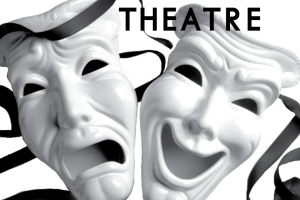Pop pops
by Jake McPherson
There is little in popular culture that attracts me. I do not know if it has to do with middle age or with growing spiritual awareness. I avoid it and mainstream media, because they upset my peace of mind, which I value highly.
I don’t watch television. Truthfully, I should say I watch it very rarely. I used to be allergic to it. I couldn’t sit still in front of the machine. Videos online used to have the same effect. They made me squirm uncontrollably. That changed. I can physically sit in front of the TV now and watch, but I honestly hate most of what I see. It’s garbage. Recently, I watched the short series Vicious starring Ian McKellen and Derek Jacobi on PBS. I enjoyed that. It was well done. I have not seen anything else in many years, and in my opinion, I’m fine. I haven’t missed a thing.
I can’t read pop fiction. I like reading, and I spend a lot of time doing it. I read books that interest me. I recently finished Gravity’s Rainbow by Thomas Pynchon for the umpteenth time in the last thirty years. Seriously, I have read it too many times to count. It’s good. I recommend it. Right now, I’m reading two books about reaching the spirit world through ritual body postures. The books are fascinating. One is Ecstatic Body Postures by Belinda Gore, and the other is Where the Spirits Ride the Wind by Dr. Felicitas Goodman. I also read a lot about theatre, acting, and directing for the stage. I read good books. Please, don’t get me started on James Patterson.
I don’t watch the news from mainstream media. Yes, I am very much an American, but I get most of my news from BBC and The Guardian. I like the new news website Vox very much.
I never have the radio on in my car. I can’t tell you anything about pop music. I have wide-ranging tastes in music, but they tend toward lyrical and classical. I recently started listening to the British singer Sam Smith. He’s very good.
I like the artist Andy Warhol’s quote very much:
Once you ‘got’ Pop, you could never see a sign again the same way again. And once you thought Pop, you could never see America the same way again.
I love art, and I’ve seen some signs that were truly high art. There was one for a liquor store on Lemmon Avenue in Dallas, Texas, that was spectacular. It was like a space ship landed on the corner with lights blinking and exploding all over the place. It was gorgeous. Yes, I like the pop art of Andy Warhol. I’m contradictory. Forgive me.
I love America, too. It’s messy. Sometimes there are ugly bits that force their way into view, but on the whole, America is all right. I’m an optimist. Forgive me.






